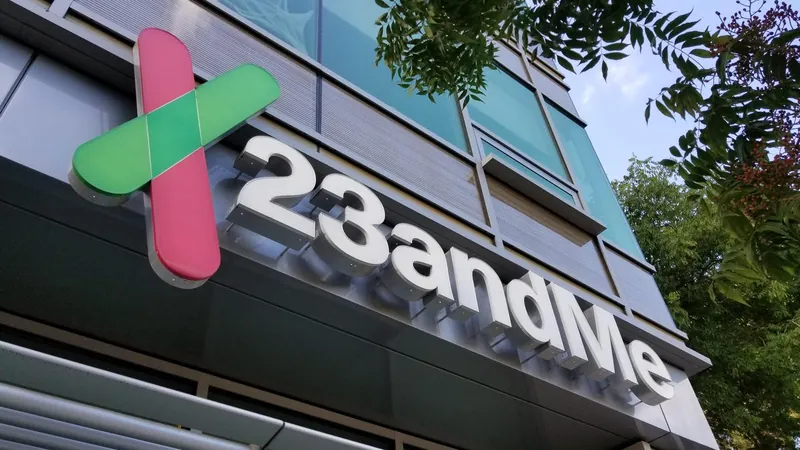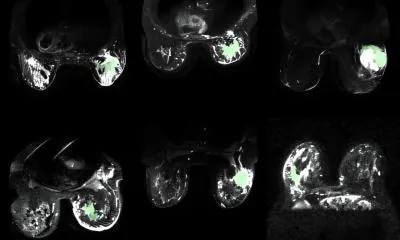
Deleting Your 23andMe Genetic Data: What You Need to Know Before Taking the Plunge!
2024-12-15
Author: Benjamin
In recent months, 23andMe has faced significant challenges, including a lawsuit settlement over a data breach and a shocking 40% workforce reduction. For the numerous customers who once felt assured about sharing their genetic information, these developments have raised an urgent question: How can I delete my genetic data?
As privacy concerns grow in our increasingly digital world, the stakes are particularly high when it comes to genetic information—a unique and intimate form of personal data. To date, over 15 million individuals have engaged with 23andMe for their DNA testing and ancestry tracking services. However, with recent unsettling news about the company’s operational struggles and hefty stock price drops, many are now reconsidering their connections to this once-trusted brand.
Amidst the turmoil, a staggering 6.9 million users were impacted by a recent data breach. Investigations revealed that attackers specifically targeted users with Chinese or Ashkenazi Jewish heritage, subsequently leaking this sensitive information onto the dark web. This breach has left many feeling vulnerable and eager to sever ties with 23andMe.
Can You Really Delete Your 23andMe Account?
The good news is that customers can delete their 23andMe accounts and personal data at any time. A spokesperson for 23andMe confirmed that once a deletion request is submitted, the company begins processing it “immediately and automatically,” although completion may take about 30 days. However, not all data disappears instantly, which is critical to understand before taking this step.
What Happens to Your Data When You Delete Your Account?
The process of data deletion is more complex than many might expect. While 23andMe's system will remove your DNA results from its database, users who participated in 23andMe Research should note that their personal information will not be included in any future studies. However, data used in already-completed research cannot be deleted.
According to reports from Bay Area news outlet SFGate, even after deletion, laboratories that handled 23andMe samples retain specific data, including customers' sex and birthdates, for legally mandated periods ranging from two to three years. The good news is that this retained information is anonymized—void of any identifying contact details.
Before Pressing Delete: Back Up Your Data!
Thinking of deleting your account? It’s vital to save any important data before proceeding. Users can download their raw genetic data, ancestry results, and connections to DNA relatives, which can be useful for future explorations into family history or genetics with alternative services. Keep in mind, preparing these downloads can take up to 30 days, so plan accordingly!
Follow these essential steps to download your data:
1. Log into your 23andMe account. 2. Navigate to the Settings menu and scroll to the bottom to access 23andMe Data. 3. Choose which details you want to download, including reports, ancestry data, and raw genetic information.
Files will generally be available in formats such as PDF, TXT, or JSON, and 23andMe will send you a download link via email for your raw DNA file.
Final Steps: Deleting Your 23andMe Account
When you’re ready to delete your account:
1. Return to Settings, scroll to 23andMe Data, and select View—verification of your birthdate may be required. 2. If you’ve saved all pertinent information, look for and tap the Permanently Delete Data button. 3. You will receive a confirmation email from 23andMe. After your confirmation, deletion processing begins, and you'll lose access to your account and any stored genetic samples.
While deleting your data may feel empowering in light of recent events, it’s helpful to inform yourself fully about the implications. Take the time to consider your options, safeguard important information, and weigh your choices wisely as you navigate the complex landscape of personal data privacy in today's world. Don’t let uncertainty hold your genetic record hostage—act now while you still can!









 Brasil (PT)
Brasil (PT)
 Canada (EN)
Canada (EN)
 Chile (ES)
Chile (ES)
 Česko (CS)
Česko (CS)
 대한민국 (KO)
대한민국 (KO)
 España (ES)
España (ES)
 France (FR)
France (FR)
 Hong Kong (EN)
Hong Kong (EN)
 Italia (IT)
Italia (IT)
 日本 (JA)
日本 (JA)
 Magyarország (HU)
Magyarország (HU)
 Norge (NO)
Norge (NO)
 Polska (PL)
Polska (PL)
 Schweiz (DE)
Schweiz (DE)
 Singapore (EN)
Singapore (EN)
 Sverige (SV)
Sverige (SV)
 Suomi (FI)
Suomi (FI)
 Türkiye (TR)
Türkiye (TR)